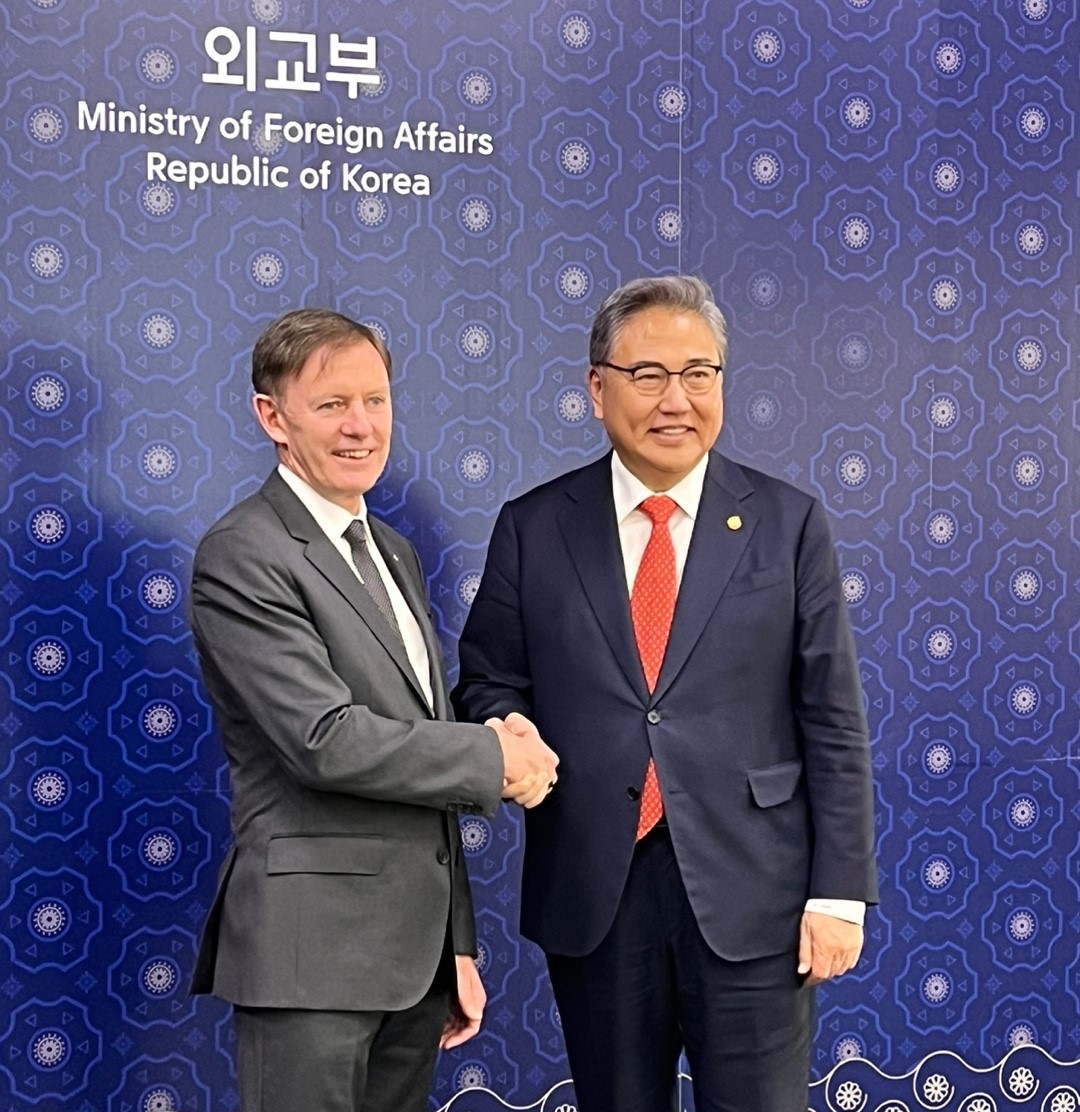July Lakeland Lecture Devoted to Northeast Asian Geopolitics
On July 18, 7pm, in LUJ's 6th floor Muskie Hall, Mr. Philip Turner, former New Zealand Ambassador to South and North Korea (2018-2023) will give a talk titled "Geopolitics in North Asia: The Deepening Challenge of Relations Between Japan, China and the Two Koreas."
Mr. Turner, who currently resides in Tokyo and is completing his PhD at Waseda University, will focus on the "uneasy stability" that exists between the four countries.
Before his talk, we asked Mr. Turner a few questions.
Your bio is obviously impressive (New Zealand Ambassador to Korea from 2018-2023, to take one example) but many of your attendees will be college students working on forging their own path into this topsy-turvy world of geopolitics. Could you tell us a bit about your years as an undergraduate, what you studied, and perhaps what motivated you to go into this field?
After graduating as a Bachelor of Arts from Auckland University, New Zealand, I went offshore travelling and working for two years. This is a common experience for young kiwis – a rite of passage that we call our OE or “Overseas Experience”.
I returned to Auckland to do a Masters degree in history. At university I was very fortunate to be able to study largely what I was interested in – history, languages, some economics. I resisted choosing subjects that might be ‘useful’ in the job market – and didn’t give much thought to a career. When I graduated my options appeared limited – but I found a great career pathway anyway. I had always been interested in geopolitics and languages, so was delighted to be able get into the New Zealand foreign service to become a diplomat.
Twelve years later I switched to the private sector and spent 18 years around the world working for Fonterra, New Zealand’s largest company. I then went back to government to be our ambassador to South and North Korea for five years. I remember when I was 20 I was asked to write down on a piece of paper what kind of life and career I wanted. I wrote simply “a stimulating life in international business and politics." I am very happy to say I think I have succeeded!
Conflict between neighboring nations seems frequent (Russia/Ukraine; Israel/Palestine), but the tensions between China, Japan, and the two Koreas seem to have gone on for decades without a new war. What has kept these countries from reaching a breaking point?
One of the striking things about Northeast Asia is that despite all the tensions, and the lack of a regional security structure such as ASEAN or NATO, there has not been a major war in the region since the early 1950s. I do not think any one thing has brought about that outcome, but we can point to factors such as: China’s focus first on internal issues and then, like Japan and South Korea, on building its economy; the US alliance relationships with both Japan and South Korea; democratization in Japan, South Korea and Taiwan; Japan’s peace constitution and the refusal of both Japan and Korea to go nuclear; and finally the openness of most countries in the region to trade, travel and investment.
On the whole the region has seen an uneasy balance of power between all the main players. What is worrying now is that some of these trends seem to be stopping or going into reverse. I worry in particular about three things: the rise of aggressive nationalism; the erosion of respect for international rules and values; and the slowdown of the strong economic growth we have seen across the region for 50 years. These will all put a strain on the political system.
All of us here at LUJ were excited to learn that you'll be joining us next term, teaching Introduction to Business. For those aspiring to enter the field, any words of wisdom...or caution?
I am really looking forward to teaching at Lakeland from the fall semester. I would recommend studying business to pretty well all students, even those who do not have any intention of working in business itself. Whether you are an entrepreneur, a homemaker, a writer or a public official, studying a bit of business gives you a valuable opportunity to understand how the world around you works - issues like supply and demand, how to read a balance sheet, how marketing works (or doesn’t) and how to build teams. In my own case, I came to work in a major company quite late in life (I was nearly 40) and had to learn a lot of these things then. It would have helped to learn much of that a lot earlier!
See the poster below for more details. To contact LUJ to learn more or inquire about the Lakeland Lecture series, contact lecture series coordinator Roger Grabowski at grabowski@japan.lakeland.edu
For all things LUJ, follow us on Instagram
